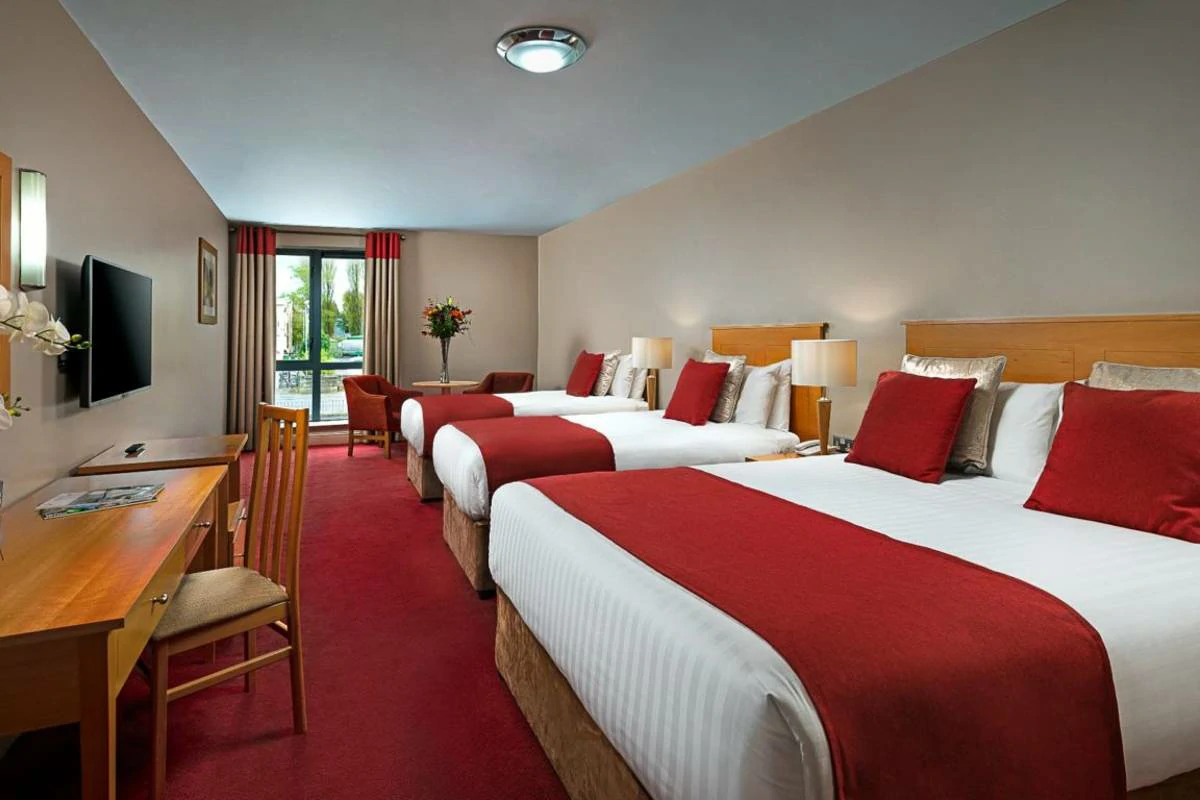Is it okay to lie about the number of guests in a hotel room? Answer is – No, lying about the number of guests in a hotel room is not okay. Hotels set occupancy limits for safety reasons and have pricing structures that often depend on the number of guests. Misrepresenting how many people will be staying in the room can result in additional fees, eviction, and even potential legal trouble. It’s always best to be honest and upfront about your needs.
Summary
- Hotels have occupancy limits based on safety and resource management.
- Many hotels charge per-person fees.
- Lying about the number of guests can lead to unexpected charges or even eviction.
- Sneaking in extra guests can negatively impact the experience of other hotel patrons.
- Alternatives like booking a larger room or finding accommodations with more flexible policies are better solutions.
Lying About Hotel Guests

In the realm of hotel stays, the issue of lying about the number of guests can be a surprisingly contentious one.
The practice involves intentionally misrepresenting the number of individuals who will be occupying a hotel room, often in an attempt to save money or circumvent occupancy restrictions.
But why does this seemingly minor deception matter, and what motivates people to engage in it? Let’s examine this phenomenon.
Lying About the Number of Guests in a Hotel Room
At its core, lying about the number of guests in a hotel room constitutes a form of dishonesty. It occurs when a guest reserves a room and indicates a lower number of occupants than will actually be staying.
This can happen during the online booking process, at check-in, or even throughout the duration of the stay.
Why People Might Consider Doing This
There are several reasons why individuals might contemplate lying about the number of hotel guests:
Cost Savings: Hotels often structure their pricing based on occupancy. Some charge a flat rate for a room, while others implement per-person fees. Sneaking in extra guests might seem like a way to avoid these additional charges.
Room Size Restrictions: Some hotels have strict occupancy limits for specific room types. If a group is larger than the allowed number, guests might try to conceal the true size of their party to secure the desired room.
Convenience: On occasion, people may have unexpected visitors for a short time. Rather than addressing it formally with the hotel, they might choose to simply have the extra guests stay without notifying the staff.
Unawareness of Policies: In some cases, guests may not be fully aware of the hotel’s rules regarding occupancy limits and fees. They might not realize that their actions constitute a form of deception.
Sarah Peterson Expert Opinion
“It’s important to remember that hotels operate as businesses with set costs and safety regulations,” explains Sarah Peterson, a hospitality consultant with over 15 years of experience. “Occupancy limits exist for a reason, and exceeding them can create potential liabilities for the hotel.”
Consequences of Lying About Hotel Guests

While the prospect of saving money or securing a preferred room might be tempting, the consequences of lying about the number of guests in a hotel room can be significant. Here’s a breakdown of the potential repercussions:
1. Financial Implications
Per-person fees: Many hotels, especially resorts and those catering to families, charge per-person fees to cover costs associated with amenities, utilities, and services. Lying about your guest count means the hotel is not receiving their due compensation, potentially leading to unexpected charges upon discovery.
Fines for exceeding occupancy limits: If a hotel discovers that you have exceeded the room’s occupancy limit, they have the right to impose fines. These fines can be substantial and significantly negate any potential savings you might have initially envisioned. In extreme cases, exceeding occupancy limits can even be considered a breach of contract.
2. Safety Concerns
Fire safety regulations: Fire codes and building regulations dictate the maximum occupancy for each hotel room. These limits are designed to ensure safe evacuation in case of an emergency. Exceeding occupancy creates a dangerous situation for all guests and could put the hotel at serious risk.
Overcrowding and strain on resources: Hotels plan for resource allocation based on their expected number of guests. This includes things like water usage, housekeeping services, and even breakfast supplies. Sneaking in extra guests disrupts this balance, straining resources and potentially leading to shortages or a decline in service quality for all paying guests.
Mark Ellis Expert Opinion
“Hotels invest considerable resources in ensuring the safety and comfort of their guests,” states Mark Ellis, Regional Director of Safety and Security for a major hotel chain. “When individuals misrepresent their guest count, they jeopardize not only their own safety but also the safety of everyone else in the building.”
3. Legal Trouble
While most instances of lying about hotel guests might result in fines or eviction, the potential for legal trouble does exist, especially in more egregious cases.
Breach of Contract: When you book a hotel room, you enter into a contractual agreement with the hotel. This agreement often includes terms related to room occupancy limits. Knowingly violating these terms can be considered a breach of contract, potentially opening the door for the hotel to take legal action against you.
Potential Fraud Charges in Extreme Cases: If the deception is significant and involves an intent to willfully defraud the hotel for financial gain, the situation could escalate. While rare, hotels might pursue charges of fraud for particularly extreme or repeated instances of lying about guest counts.
4. Impact on Other Guests
The negative consequences of lying about hotel guests aren’t limited to just yourself and the hotel. Other paying guests can be significantly impacted by your actions.
Noise Disturbances: More people in a room often lead to increased noise levels. This can be especially disruptive in hotels where rooms share walls, negatively impacting the quality of stay for your neighbors.
Overuse of Facilities: Hotels design their pools, gyms, breakfast areas, and other amenities based on their anticipated guest count. When extra guests are present, facilities can become overcrowded. This leads to longer wait times, potential shortages of supplies, and an overall decline in the experience for guests who are actually paying for those amenities.
Jessica Davies Expert Opinion
“It’s crucial to remember that hotels are not just businesses, but also communities of travelers,” says Jessica Davies, a travel blogger with over a decade of experience. “When someone chooses dishonesty, it has a ripple effect that can sour the experience for responsible guests. “
Why Honesty is the Best Policy

While the temptation to sneak in extra guests might exist, a close examination reveals that honesty consistently leads to more positive outcomes for both guests and the hotel. Here’s why:
1. Avoiding Unexpected Costs
Hotels are transparent about their pricing structures, often listing per-person fees and occupancy rules on their websites or booking platforms.
Attempting to circumvent these fees sets you up for unpleasant surprises at checkout. Unexpected charges, fines, or even the cost of securing an additional room at the last minute can easily negate any initial savings you might have envisioned.
Being upfront about your guest count ensures that you’re fully aware of the costs throughout your stay.
2. Respecting Hotel Policies
Hotel policies exist for a reason. Occupancy limits are tied to safety regulations, resource management, and the overall guest experience the hotel aims to provide.
When you respect hotel policies, you demonstrate that you are a responsible guest and value the efforts the hotel makes to provide comfortable accommodations.
This respect helps foster a more positive dynamic between you and the hotel staff.
3. Maintaining a Positive Relationship with the Hotel
Getting caught lying about the number of guests can damage your relationship with the hotel.
This could result in being asked to leave, getting banned from future stays, or having negative feedback associated with your name or booking account.
Building a reputation as an honest and conscientious guest has long-term benefits. You may be more likely to receive excellent service, have special requests accommodated, or even gain access to upgrades and other perks in the future.
Emily Peterson Expert Opinion
“At the heart of the hospitality industry lies a desire to create welcoming, comfortable spaces for guests,” explains Emily Peterson, a hotel manager with over 15 years of experience. “Honesty from our guests allows us to better serve their needs, ensuring everyone has a safe and enjoyable experience.”
Alternatives to Lying About Hotel Guests

When faced with a situation where your party size exceeds the standard occupancy limits, the best course of action involves open communication and seeking legitimate solutions. Here are a few effective strategies:
1. Booking a Larger Room
Explore Options: Many hotels offer a variety of room types, including suites, family rooms, or connecting rooms that are designed to accommodate more guests. Investigate the options available on the hotel’s website or contact them directly for recommendations.
Weighing Costs: While a larger room might be more expensive initially, it will almost certainly be cheaper than paying per-person fees for extra guests on top of the standard room rate, plus any potential fines you might incur if caught.
Additional Perks: Larger rooms often come with benefits like more spacious living areas, kitchenettes, or better views, all of which enhance the overall quality of your stay.
2. Finding Accommodations with More Flexible Occupancy Policies
Vacation Rentals: Platforms like Airbnb and Vrbo offer a wide array of vacation homes, apartments, and condos. These properties often have more flexible occupancy rules and might be listed with a price per property rather than per person.
Hostels: For budget-conscious travelers, hostels provide affordable accommodations, with many offering private rooms that can accommodate small groups. Check out websites like Hostelworld to explore options.
Boutique Hotels and Bed & Breakfasts: Smaller, independently owned hotels or bed and breakfasts sometimes have more flexibility when it comes to occupancy. They might be more willing to work with you if your group size slightly exceeds their standard limit.
3. Communicating with the Hotel in Advance
Being Honest and Upfront: If you have an unexpected guest joining for a short period or an additional guest beyond the room limit, contact the hotel in advance to explain the situation. While not a guarantee, some hotels may be willing to make accommodations or offer a reasonable solution.
Inquiring About Costs: Ask about any extra fees that might apply if you have one or two guests beyond the room’s standard occupancy. This way, you can compare the cost to other options and make an informed decision.
The Power of Kindness: Approaching hotel staff in a friendly and respectful manner goes a long way. They are more likely to be understanding and work with you if you’re demonstrating honesty and willingness to find a solution that works for everyone.
Thomas Wright Expert Opinion
“Transparency with our guests is always appreciated,” says Thomas Wright, a front desk manager at a boutique hotel. “Giving us a heads-up lets us manage resources better and ensures that we are always in compliance with safety regulations, creating the best possible stay for every guest.”
FAQs
Can hotels tell if you have extra guests?
Hotels have various ways to determine if you have more guests than you initially stated. Some telltale signs include:
- Housekeeping Noticing: Extra towels, used toiletries, or multiple sets of belongings can alert housekeeping staff to more occupants than were declared.
- Noise Complaints: A room with extra guests is more likely to exceed noise limits, potentially prompting complaints from neighboring guests.
- Security Cameras: Many hotels have cameras in common areas, like hallways and parking lots, which can reveal more people entering and leaving a room than expected.
- Amenity Usage: A sudden spike in breakfast attendance or heavy use of pool facilities might raise suspicion about extra, unregistered guests.
What happens if I get caught lying about hotel guests?
The consequences range from mild to severe, depending on the hotel’s policies and the specific situation:
- Fees and Fines: At the very least, expect to be charged for the extra guests, including any per-person fees and potentially an additional fine for violating the hotel’s occupancy rules.
- Eviction: The hotel has the right to ask you and your entire party to leave the premises, even if you’ve already paid for several nights.
- Banned from Future Stays: In severe cases, you can be banned from the hotel or even the entire hotel chain, making future bookings difficult.
- Legal Trouble: In extreme scenarios involving significant occupancy discrepancies or an intent to defraud, legal action, though rare, is a possibility.
Is it okay to have a few extra guests for a short time?
This is a gray area, and the best approach is always being upfront with the hotel. Some hotels might be more lenient with a temporary visitor, especially if they aren’t using the amenities or staying overnight. However, dishonesty always carries a risk, and clear communication eliminates any potential for misunderstandings.
Are there ever exceptions to hotel occupancy rules?
There can be limited exceptions in certain cases:
- Medical Emergencies: If someone in your group unexpectedly gets sick or injured, hotels might be more flexible in accommodating a temporary additional guest for support reasons.
- Young Children: Some hotels may not count infants or very young children who sleep in a crib or with their parents towards the occupancy limit.
- Negotiations: If you are a frequent guest, a member of a loyalty program, or are booking a group stay, you might have more leverage in negotiating flexibility about a slightly larger group.
Conclusion
Lying about the number of guests in a hotel room might seem like a harmless way to save some money or get a larger group into your chosen accommodations.
However, the potential consequences – financial, legal, and reputational – far outweigh any perceived benefits.
Transparency, open communication, and exploring legitimate alternatives are the keys to a successful and stress-free hotel stay.
Remember, hotels are in the business of providing comfort and hospitality. Treating them with honesty and respect fosters a positive relationship for both you and future guests.







